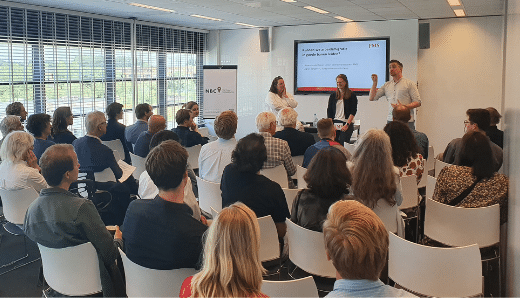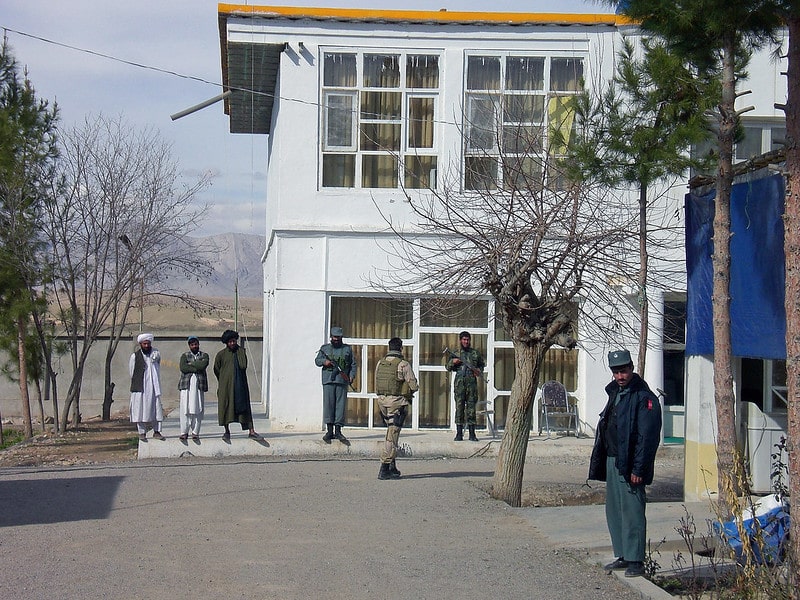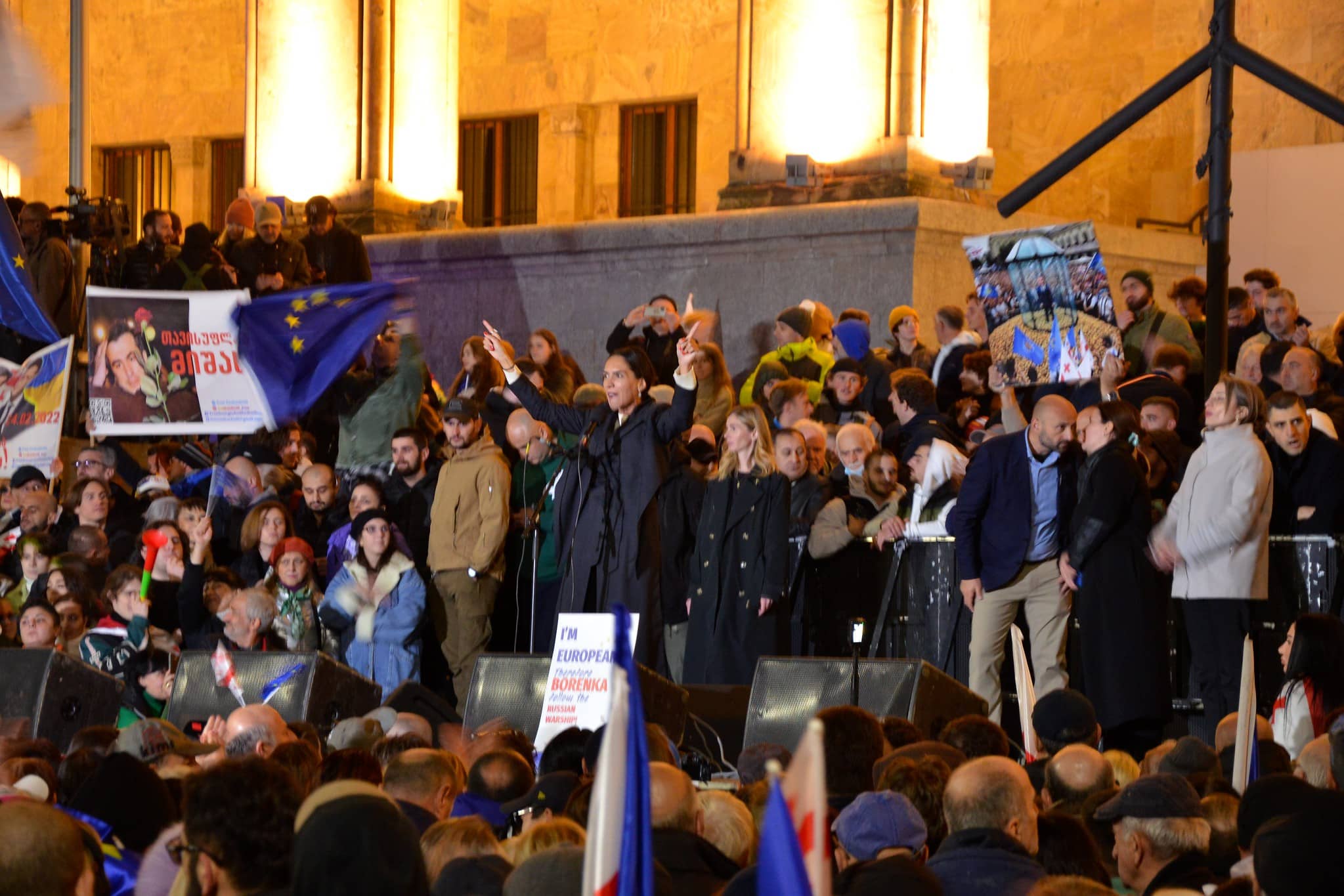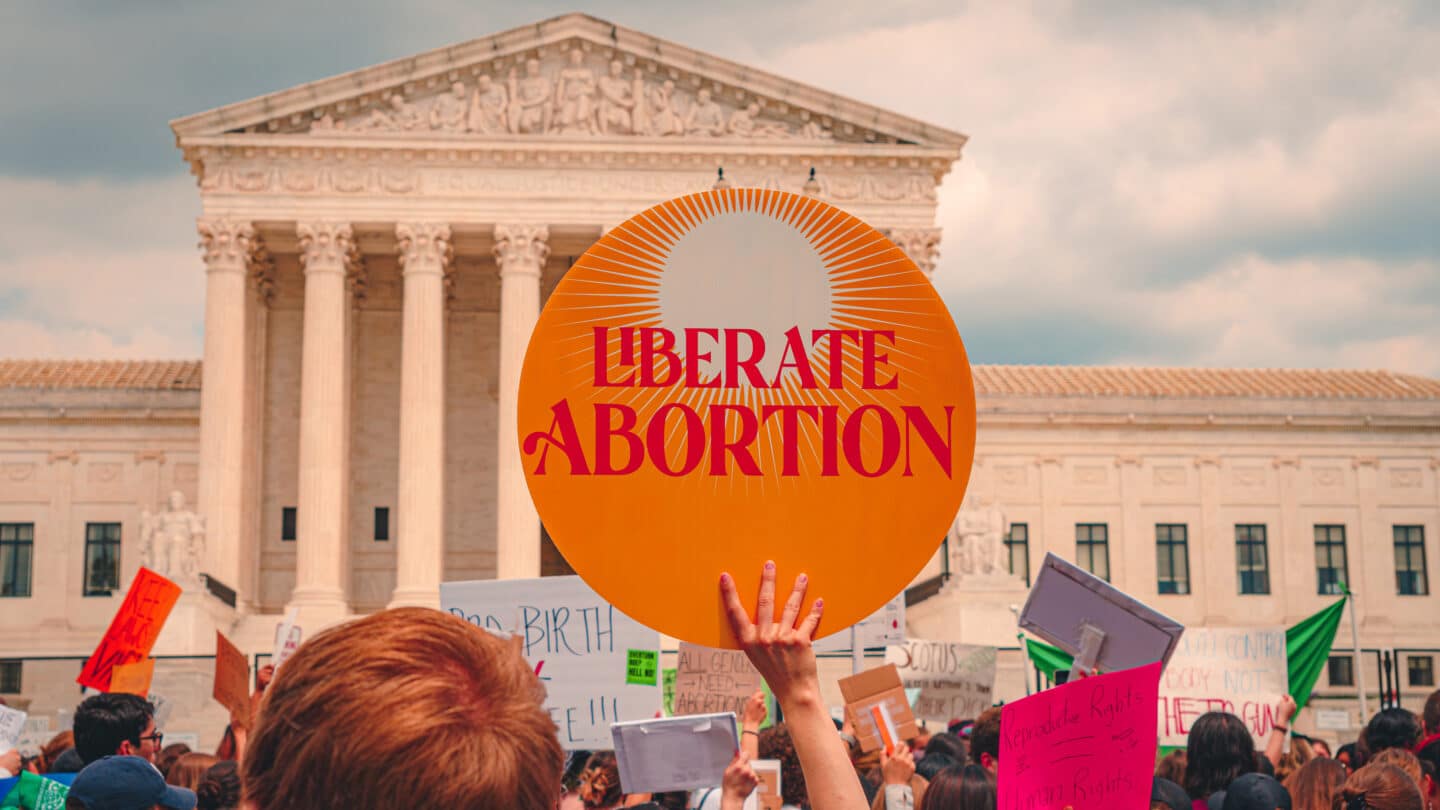On Saturday 11 June, the Labour Party Congress finally took place again! This year, the huge event could again physically take place. Consequently, the atmosphere was good and the day was well attended. Also special was the vote on further left-wing cooperation with the Green Left, which attracted a lot of attention not only among PvdA members, but also nationally.
Presence FMS
Of course, the FMS was also happy to attend, both with a stand and an interesting workshop. With the day's lovely weather, it was possible for the exhibitors to stand outside in the sunshine. Lunch was also held on this atmospheric field, so there was a lot of load shedding in front of the stands around these hours, resulting in fun and lively conversations.
At the booth, people could already delve into the reports written by the FMS on migration. This was followed by a session by Anne van der Meer (FMS) and Agnes Jongerius (Labour Party MEP).
Can we manage labour migration?
Moderator Kido Koenig introduced the session to a well-filled room, whose main question was 'Can we manage labour migration?' Anne explained that many African migrants migrate irregularly. This is because there are virtually no legal options, resulting in many losing their lives on the Mediterranean Sea. Many of these migrants see no future prospects in their own countries and regions. Added to this, a lot of money earmarked for development cooperation is actually used to stop migrants in various places.
The irregular migrants who do manage to reach the EU are too often and excessively exploited, Agnes argues. These people end up in harsh working and living conditions, at extremely low wages.
This introductory sketch of the situation opens the debate. The audience is invited to join in the discussion on the proposition: 'Employers are eager for it, so the European Commission's plan to make it easier for non-EU migrant workers to work in Europe we a good idea'.
'Barren conditions'
A fascinating conversation ensues, focusing mainly on the conditions and exploitation of migrants in the Netherlands. Unlike other EU countries, the Dutch labour market is extremely flexible. The employment agencies benefit from this; migrants are hardly paid for hard work, and often find themselves in harsh living and working conditions. Meanwhile, the employment agencies have no obligation to offer these people a permit.
'Many distribution centres in the Netherlands cannot run without migrant workers, hardly any Dutch people work there. If those centres cannot run without these migrants, we simply have to offer those people decent housing,' Agnes argued. The question also arose whether, if we cannot offer these people decent conditions, such distribution centres have a right to exist in the Netherlands.
It was added from the audience that there is also a big role here for the labour inspectorate, which is now absent. 'The rules regarding a decent working environment and decent housing are already there. Now just the enforcement.'
Tight labour market makes it topical again
The current tight labour market makes labour migration a hot topic again. However, Agnes stresses that needing migrant workers to fill jobs is an occasional argument. There needs to be a more humane approach. The attention now from the media will hopefully also make exploitation and poor housing highlighted, and perhaps end up on the political agenda.
What is clear is that there is still a long way to go and there will have to be a lot of discussion about this in the near future.
Image: room Labour Party congress in which the FMS session took place on Saturday 11 June





